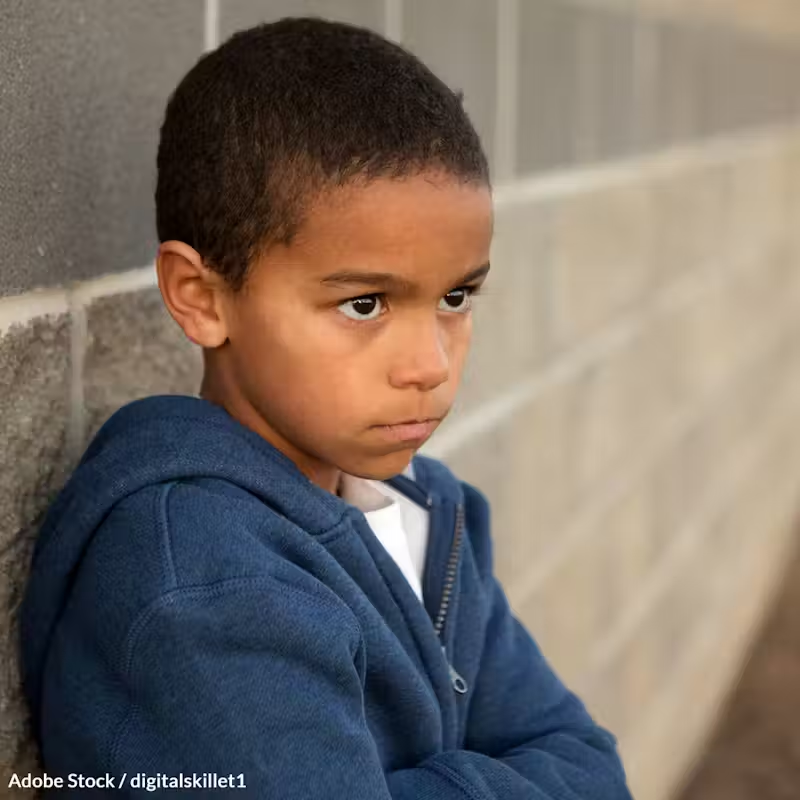Shut Down the School-to-Prison Pipeline
7,383 signatures toward our 30,000 Goal
Sponsor: The Literacy Site
A lifetime of punishment and exclusion almost guarantees that at-risk children will miss out on opportunities. Take a stand!

The school-to-prison pipeline describes the process in which children, and especially children of color, are systematically pressured out of productive society and into the prison system.
There is significant evidence that these children are not given the same opportunities as their peers1. Rather, they become marginalized by "zero tolerance" polices, now widely discredited by research2. These practices are still widespread in the United States and have been exported worldwide3.
School failure and exclusion predict poor life outcomes and are implicated in the mass incarceration of boys and young men of color4. Still, these are not impossible problems as educators and policy makers have several strategies to engage instead of exclude these students.
Here are five steps that can be taken to eliminate the school to prison pipeline:
- More Social Workers & Mental Health Professionals.
One of the best ways to ensure that children have a solid emotional foundation on which to learn is to make sure that their home lives are safe and secure. Skilled social workers and mental health professionals can get engaged with these students before and help them thrive.
- Reduce Classroom Size.
Larger class sizes lead to children acting out in violent or asocial ways5. Classroom size is one of the biggest contributors to the school to prison pipeline, while a reduced class size is directly correlated to improved outcomes for children6.
- End Suspensions & Arrests for Minor Misbehavior.
"Zero tolerance" policies aimed at dissuading serious offenses also result in overly punitive measures for smaller infractions7.
- Restorative Justice.
Rather than "an eye for an eye," restorative justice takes an additive approach, affirming that those involved are human, and responsible for their actions. It is then the perpetrator's responsibility to restore the any injury to the victim8.
- Engagement With Educators, Students, Parents & Community Advocates on Intentional Empathy.
Opportunities for empathy lead to more positive results as children grow into adults. These lessons help children understand how to treat others with kindness and compassion, and further reduce the school to prison pipeline.
No child dreams of being imprisoned when they grow up. Click below and help us make a difference.
- American Civil Liberties Union (2022), "School-To-Prison Pipeline [infographic]."
- American Psychological Association Zero Tolerance Task Force, American Psychologist (2008), "Are Zero Tolerance Policies Effective in the Schools?"
- Le Monde diplomatique (April 1999), "Penal 'common sense' comes to Europe."
- Harry Wilson, Reclaiming Children and Youth (2014), "Turning off the School-to-Prison Pipeline."
- Matthew M. Chingos and Grover J. "Russ" Whitehurst, Brookings (11 May 2011), "Class Size: What Research Says and What it Means for State Policy."
- MST Services (18 September 2018), "How Can We Stop The School-To-Prison Pipeline?"
- Libby Nelson and Dara Lind, Vox (27 October 2015), "The school-to-prison pipeline, explained."
- Paul McCold, International Institute for Restorative Practices (31 March 1995), "Restorative Justice: The Role of the Community."
- Ted Wachtel, International Institute for Restorative Practices (2016), "Defining Restorative."
The Petition:
To the Education Department and the Department of Justice,
No child dreams of being imprisoned when they grow up, and I am asking you to shut down the school-to-prison pipeline so these dreams are not supplanted by a nightmare.
Zero tolerance and other exclusionary school discipline policies are pushing kids out of the classroom and into the criminal justice system at unprecedented rates, harming our students, our educators, and our communities.
There is a better way, and I am calling on you to disrupt the School-to-Prison Pipeline.
In order to do this, our schools must:
- Bring in more social workers and mental health professionals.
- Reduce classroom sizes.
- End suspensions and arrests for minor misbehavior.
- Adopt school-wide positive restorative justice practices and enhance training for all school personnel.
- Engage educators, students, parents, and community advocates to build and strengthen successful implementation.
Positive and proactive approaches to discipline and communication can increase educational opportunities. Every student has a right to a quality education, to be treated with dignity, and to be provided with the opportunity to learn.
Please ensure that our children have a brighter future.
Sincerely,
 Welcome Back! Log In to Continue
Welcome Back! Log In to Continue